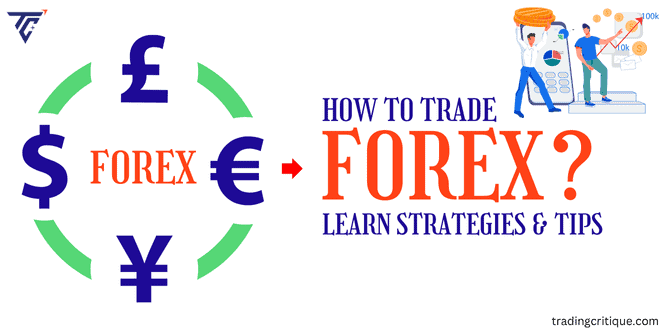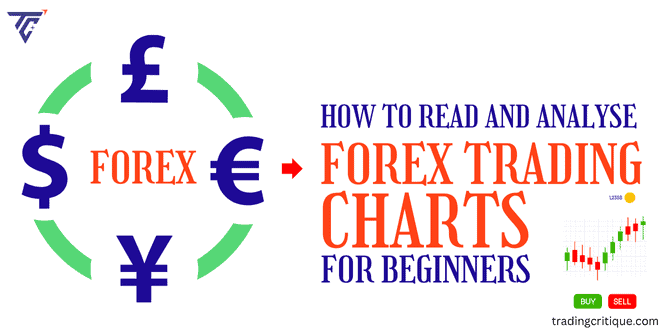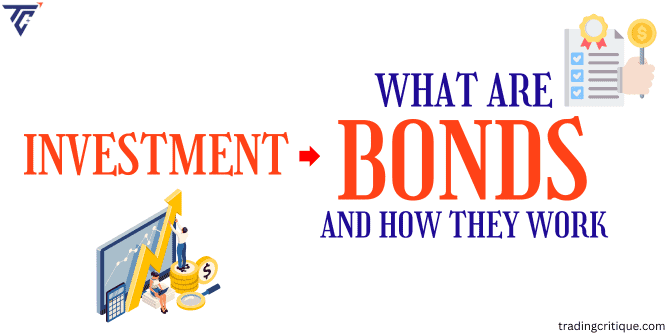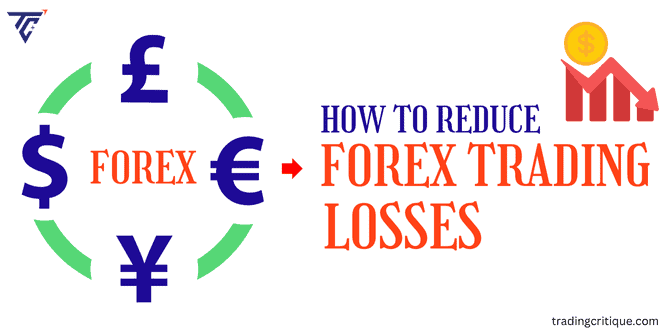The Real Reasons - Why Most Forex Traders Fail and Lose Money?
Why do most forex traders fail? It happens due to a lack of knowledge, overconfidence, emotions, false perceptions, and more. In this, we provide the common reasons why forex traders fail and lose money so that you can avoid making these mistakes again.
Quick Insights
Using stop-loss orders effectively, maintaining risk/reward ratios, and avoiding overleveraging is crucial for minimizing losses.
Fear, greed, and overconfidence often lead to impulsive decisions and trading mistakes. Discipline and emotional control are essential for consistent trading success.
Understanding market fundamentals, technical analysis, and practicing with demo accounts are vital for improving trading skills and decision-making.
What is forex?
Forex (FX) stands for “foreign exchange,” and it refers to the global marketplace for trading currencies. Unlike other markets, Forex has no central physical location. It’s the largest and most liquid market in the world, with daily trading volumes in the trillions of dollars.
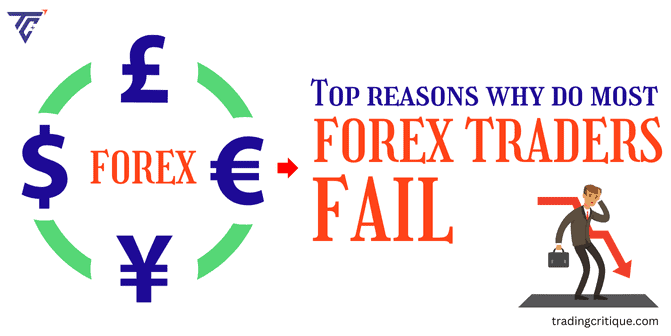
Forex market operates 24 hours a day, five days a week, across different time zones. It has the highest trading volume compared to other markets like stocks or commodities. Traders can control large positions with a relatively small amount of capital, but this also increases risk.
Why most forex traders lose money
Forex trading, like any financial trading, can be highly profitable but also comes with significant risks. Why do most forex traders fail? Many forex traders fail due to several common mistakes. Here’s a simple breakdown of the main reasons,
Learning from mistakes
Learning forex trading solely through personal experience can be very expensive. Successful forex traders often learn from mentors, professional traders, or formal education, reducing costly errors. And most importantly forex traders should stay out of scammers. For this, having a basic understanding of forex scams and the tips to protect from scammers is essential.
Wanting to be right more than making money
Some traders become emotionally attached to their trades, prioritizing being right over making profitable decisions. This can result in holding onto losing positions for too long instead of cutting losses.
Using too much-borrowed money
Leverage allows traders to control large positions with a small amount of money, amplifying both gains and losses. Many traders use too much leverage, leading to rapid and significant losses even with small market movements.
A trader with $100 might use leverage to control $10,000 worth of currency, but a small market movement against them can wipe out their account.
Poor risk management
Poor risk management in forex trading refers to not effectively controlling the potential losses and profits of your trades. This can lead to quick losses of money. Here’s why:
Lack of stop-loss and take-profit orders
- These are crucial tools that help limit losses and lock in profits automatically.
- If you don't use them or use them improperly (like setting them too close or too far), you risk losing more money than planned or missing out on potential gains.
Ignoring risk/reward ratios
- This ratio helps you assess whether a trade is worth taking based on potential profit versus potential loss.
- For example, if you aim to make 100 pips (profit) but only risk losing 50 pips (loss), you have a 2:1 risk/reward ratio.
- Ignoring this ratio can lead to taking trades where the potential loss outweighs the potential gain.
Not adapting to market conditions
- Market volatility changes, affecting the likelihood of your stop-loss or take-profit levels being hit.
- If you don’t adjust these levels according to current market conditions, you may experience unexpected losses or miss out on achievable profits.
Overlooking position sizing
- Trading too much of your account on one trade increases the risk of significant losses if the trade goes against you.
- Proper position sizing ensures you can withstand losses and continue trading effectively.
Lack of practice and preparation
- Using a demo account allows you to practice trading strategies without risking real money.
- Without this preparation, traders may enter the market unprepared, leading to avoidable losses.
Unrealistic expectations
Many novice traders enter the market with unrealistic hopes of achieving fast profits. Without proper guidance and realistic goals, they often take on too much risk and make poor decisions.
Not enough money to trade safely
Trading with too little capital increases the risk of losing everything. It also leads to overleveraging, where traders use borrowed money to trade, amplifying both gains and losses.
Getting addicted to trading
Trading can be addictive, especially because of the excitement and adrenaline. This can lead to making trades based on emotion rather than logic and strategy.
Ignoring a trading plan
A trading plan includes rules for when to enter and exit trades, how much to risk, and other important details. Many traders fail because they don’t have a plan or don’t stick to it.
Making too many trades
Overtrading involves making too many trades, often driven by the desire to make quick profits. This can lead to increased transaction costs and poor decision-making.
Not taking responsibility for mistakes
Not accepting responsibility for losses and mistakes in forex trading means refusing to admit that you’re accountable for your trading outcomes.
It’s crucial to take ownership of your mistakes, learn from them, and improve your trading strategy instead of blaming external factors. This mind set helps traders grow and become more successful in the long run.
Strategies to prevent financial losses in forex trading
The global forex market, the world’s largest financial market, lures traders of all levels with its profit potential. Many enter due to easy access and low costs but often leave after losses. Here are 10 tips to help new traders avoid losing money.
- Conduct research: Before start trading, learn about how the forex market works and what influences currency pairs. Research is crucial for success.
- Find a good broker: Choose a reputable broker registered with regulatory bodies to ensure your funds are safe. Check their services and policies carefully.
- Use a practice account: Practice trading with a demo account to gain experience without risking real money. This helps prevent costly mistakes later.
- Keep charts simple: Use only essential technical analysis tools on your trading platform. Avoid cluttering your charts with unnecessary indicators.
- Protect your account: Manage your money carefully. Use stop-loss orders to limit losses and consider setting daily trading limits to control risk.
- Start small with real money: When you're ready to trade with real money, begin with a small amount. This allows you to adapt to real market conditions gradually.
- Use leverage wisely: Leverage can amplify profits but also increase losses. Use it conservatively based on your account size to manage risk effectively.
- Maintain good records: Keep a trading journal to track your trades, analyze your performance, and learn from your successes and failures.
- Understand taxes: Be aware of the tax implications of forex trading in your country. Consult a tax advisor to manage your taxes efficiently.
- Treat trading seriously: Approach forex trading as a business. Stay disciplined, manage your emotions, and focus on long-term success rather than short-term gains.
Conclusion
Many forex traders fail because they lack knowledge, trade based on emotions, use too much-borrowed money (leverage), and don’t manage risks well. To succeed, profitable traders should learn from experienced mentors, use tools like stop-loss orders to limit losses, and stick to a solid trading plan.
Similar principles apply to stock market trading: successful traders manage risks, learn from mistakes, and stay disciplined in their strategies. This approach helps them avoid common pitfalls, losing traders and improve their chances of making profits over time.
Learn more: How to start investing in stock market
Pro Tip
Maximize your trading achievements with our trusted Forex brokers! Stay abreast of stocks, CFDs, banking, forex, trading, investment, and cryptocurrencies. Find reliable broker reviews to make smart trading decisions.

Subscribe to
Our Newsletter
Latest Posts
How to Trade Forex | Learn 6 Strategies and Tips
Discover the world of forex trading with our comprehensive guide. Learn essential...
Read MoreFP Markets Review 2024: Everything You Need To Know
Founded in 2005, FP Markets is a leading online broker renowned for...
Read MoreHow to Invest in Ethereum in 2024 – Simple Guide for Beginners
Ethereum is a decentralized blockchain platform that enables smart contracts, enabling secure,...
Read MoreIs Cryptocurrency a Safe Investment? What You Need To Know
Investing in cryptocurrency involves selecting the right cryptocurrency and securely storing your...
Read MoreHow to Read Forex Charts for Beginners • Simple Methods
Traders look for the currency pair price movements, their patterns, and their...
Read MoreBonds: What it is, Types of Bonds & How they Work (2024 guide)
Are you seeking for safe investment with predictable returns? Our 2024 guide...
Read MoreWhat are The Best Crypto Trading Strategies for Beginners in 2024?
Unsure about choosing the best trading strategies for beginners in 2024? This...
Read MoreForex Pairs: How They Work, How To Read, Examples
Forex pairs are combinations of two different currencies that are traded in...
Read MoreBest Ways to Avoid Losses in Forex Trading
Foreign Exchange – Forex market is the world’s largest financial market in...
Read More

